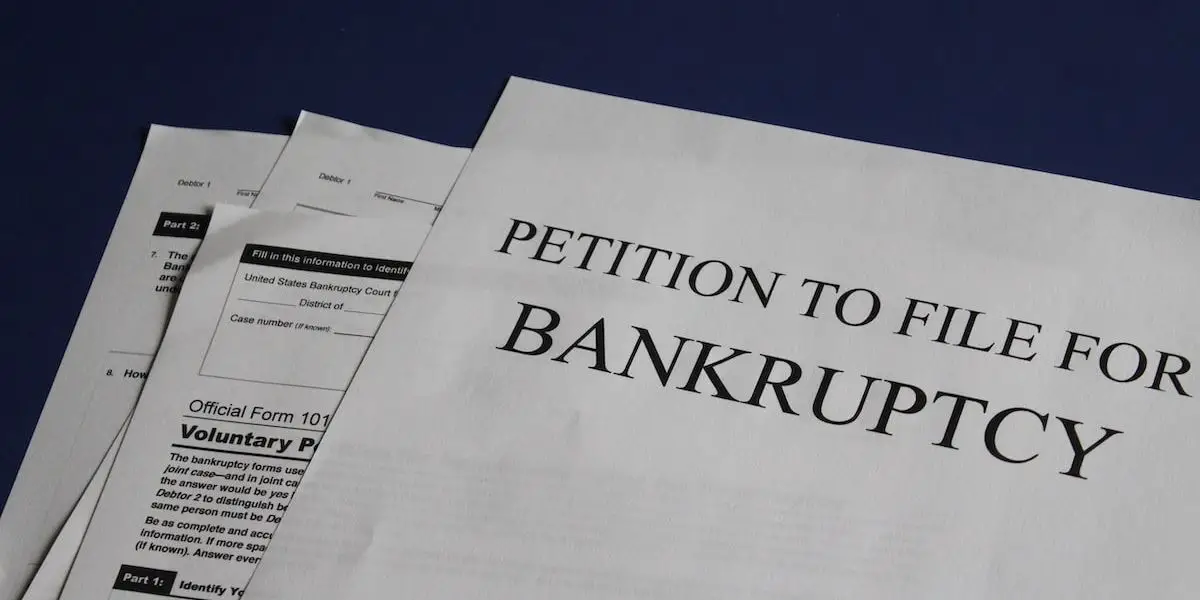The process of buying a house is often complex and involves various considerations. Mortgage brokers play an important role in helping to make the process easier by assessing various factors related to a potential purchase.
This article will explore the criteria that mortgage brokers look at when buying a house.
The criteria used by mortgage brokers can vary from case to case, but there are several common elements that will be considered during any assessment. These include the buyer’s credit score, income and employment history, as well as other elements such as the size of the deposit and the type of loan being sought.
Furthermore, many mortgage brokers take into account other factors such as location and condition of the property in making decisions about whether or not to grant a loan.
Credit Score
When buying a house, the mortgage broker will examine your credit score with the cold, calculating eye of an investor. With a single glance, they can discern whether you’re a solid investment or an unwise risk and whether to proceed with the loan or not.
Credit utilisation, income sources and other factors are taken into account and analysed to determine the safety of lending money to you. One vital criteria for obtaining a loan is credit utilisation. This refers to how much of your available credit line you use and is determined by dividing your current balance on all revolving accounts by the total of all revolving credit limits. The higher this ratio, the lower your score will be as it suggests that you are living beyond your means and may not be able to make payments on time in future.
Income is also taken into account when assessing one’s eligibility for a loan. Mortgage brokers look at both primary income sources as well as any additional income from rental properties, investments or other sources that can help contribute to making payments on time. They also look at employment history for consistency in job stability which could help demonstrate financial dependability over time. All these factors have to be weighed in order to decide if granting a loan would be a wise decision for everyone involved.
Income And Employment History

When considering a potential homebuyer’s mortgage application, brokers will need to assess their income and employment history. The primary factor in this assessment is the verification of income, which must come from reliable sources such as pay stubs, tax documents and other financial statements.
In addition, brokers will look for signs of job stability, including how long the applicant has been employed in the same job or if there have been any recent changes in their line of work.
The broker will also consider other sources of income that could potentially be used to cover the mortgage payments. This could include child support payments, alimony, investments or rental income. It is important that these forms of income can be verified with documentation to ensure they are reliable and consistent over time.
Another factor that needs to be taken into account is whether or not the applicant has any outstanding debt or liabilities, such as credit card debt or car loans. If so, this could reduce the amount available for a down payment on the house and make it more difficult for them to qualify for a mortgage loan.
Therefore it is important that applicants provide proof that they are able to make all their existing payments on time each month before applying for a mortgage loan. Moving onto the next step in the process: understanding what kind of deposit may be necessary for approval.
Deposit
When considering the purchase of a house, mortgage brokers will often look at the deposit. The amount of money required for this initial payment is usually determined by both the lender and borrower, and can vary significantly depending on a number of factors such as property value and credit score.It’s important for UK property investors to understand all their options when it comes to making a deposit on a house. Understanding how much money is required upfront, will give them greater control over their finances and help them manage their budget more effectively.
Mortgage brokers also consider different types of loan when applying for a mortgage for their client – such as a fixed rate or adjustable-rate mortgages.
Type Of Loan
Having discussed the importance of a deposit when purchasing a home, it is important to also consider the type of loan that you will use to finance the purchase.
When applying for a loan, property investors must be aware of mortgage rates as they can greatly influence how much they pay each month. Mortgage rates are often tied to economic trends and market conditions such as inflation. When interest rates are low, home buyers can take advantage of lower monthly payments; however if interest rates rise, so do monthly payments.
To ensure that you get the best deal on your mortgage loan, work with an experienced mortgage broker who can help you shop around for competitive rates.
No matter what type of loan you choose or what mortgage rate you secure, it is important to know that location plays an important role in any real estate transaction. Location influences many aspects: from property value and tax rate to nearby amenities and access to public transportation.
Understanding all these factors before signing a purchase agreement will help ensure that your purchase decision is sound and beneficial in the long run.
Location

Location is a primary factor when buying a house. The neighborhood amenities and local taxes should be taken into consideration when making an investment in property. There are some key points to consider:
- Location: Are there any nearby attractions such as restaurants, parks and local shopping options?
- Neighborhood amenities: Does the area have good schools, public transportation and other community facilities?
- Local taxes: How much do you pay in property taxes? How high are the utility costs?
- Crime rate: What is the crime rate like in the area? Are there any safety concerns that need to be addressed?
These are important factors for UK property investors to research before making an investment in real estate. Knowing what kind of neighborhood a house is located in can help determine if it is worth investing in or not. It’s also important to understand how local taxes may affect monthly payments and what kind of return on investment can be expected from an investment in this particular location.
Knowing these things will help inform the decision-making process when selecting a home to buy or rent.
The next step is to evaluate the condition of the property itself before signing any contracts or agreements.
Condition Of Property
Location is an essential factor in the buying process, but so too is the condition of the property. Mortgage brokers are particularly concerned about this aspect, as it has significant implications for their lending decisions. Consequently, they will evaluate the property very carefully to ensure that it meets their risk criteria.
One of the primary methods used by mortgage brokers is a house inspection. This involves an independent surveyor examining all aspects of the property, including its structural integrity, safety compliance and general condition. The surveyor will then provide a report to the lender outlining any major problems or potential hazards that could affect the value of the property.
In addition to house inspection, mortgage brokers may also require mortgage insurance to cover any unforeseen circumstances that could arise during or after purchase. This insurance provides additional protection against default and financial loss should something go wrong with the property or its ownership later on.
Furthermore, it can also help protect lenders from borrowers who are unable to meet their debt-to-income ratio requirements due to unexpected changes in income or expenses.
Debt-To-Income Ratio
Debt-to-income ratio is an important factor when buying a house. It measures the ability of the borrower to service their debts, by comparing the total monthly income against all debt obligations.
A high debt-to-income ratio indicates lower disposable income and thus a higher risk of defaulting on loan payments. Mortgage brokers look for a ratio that is less than 40%, although this may vary depending on various factors such as credit history, job stability and other assets. Debt consolidation can also help reduce the debt-to-income ratio by combining several outstanding debts into one payment with lower interest rates.
The loan-to-value ratio is another important consideration when purchasing property. This is calculated by taking the mortgage amount and dividing it by the appraised value of the home.
For example, if a house has an appraised value of £400,000 and requires a mortgage of £300,000, then the loan-to-value ratio would be 75%. Generally speaking, lenders prefer a loan-to-value ratio that is lower than 90%, as this implies less risk to them in case of default or repossession.
Higher ratios are usually associated with higher interest rates or additional requirements such as private mortgage insurance. In order to obtain favourable terms on their mortgage, borrowers need to demonstrate that they have sufficient income to pay off their loans while also having enough disposable income for other expenses.
Mortgage brokers also consider the loan amount in relation to the value of the property being purchased, which helps determine whether or not lending criteria will be met. With these two factors in mind, buyers can be better equipped to make informed decisions about their mortgage options and ensure that they get favourable terms for their home purchase.
Loan-To-Value Ratio
The loan-to-value (LTV) ratio is a key metric used in the mortgage process, and is calculated by dividing the loan amount by the value of the property.
A low LTV ratio can be beneficial to the borrower, as it can result in a lower interest rate or a larger loan amount.
Additionally, it can also help the borrower avoid the cost of private mortgage insurance, as lenders are less likely to require it if the LTV ratio is below a certain threshold.
In the UK, lenders usually prefer an LTV ratio of no more than 80%, although this varies depending on the type of loan and the borrower’s creditworthiness.
Calculating Loan-To-Value Ratio

When determining a loan-to-value ratio, mortgage brokers evaluate the value of the property against the amount of money being borrowed.
This ratio is calculated by dividing the loan amount by the appraised value or purchase price of the home, whichever is lower.
A low loan-to-value ratio typically means that borrowers have made a larger deposit and are less likely to default on their loan.
Mortgage insurance may be required if this ratio exceeds 80%, and closing costs may also be affected depending on the percentage.
In addition to loan-to-value ratios, mortgage brokers will also consider credit scores, income, debt and other factors when making an approval decision.
Ultimately, lenders must feel comfortable with the borrower’s ability to repay and that they will not be taking on too much risk for a particular property.
Benefits Of A Low Loan-To-Value Ratio
Having a low loan-to-value ratio can be beneficial for both lenders and borrowers in the UK property market.
For lenders, this ratio indicates that borrowers have put down a substantial amount of money towards the purchase of their home and are therefore less likely to default on their loan. This reduces risk for the lender and can result in lower mortgage interest rates.
Additionally, if the loan-to-value ratio is below 80%, mortgage insurance may not be required, which further increases cash flow for the borrower.
Furthermore, having a low loan-to-value ratio may help to reduce completion costs associated with taking out a loan on a property.
Ultimately, having a low loan-to-value ratio ensures that both parties are protected while also providing access to more favorable lending terms.
Reserves And Collateral
Mortgage brokers consider both reserves and collateral when evaluating a potential home purchase.
Reserves refer to the amount of money that the buyer has saved to cover the deposit, closing costs, repairs, and renovation costs associated with the purchase of a new property. In addition, the mortgage broker will usually require proof that these funds are readily available from a reliable source.
Collateral is another important factor for mortgage brokers. This refers to any assets that can be used as security in case of default on the loan. The most common form of collateral is real estate; however, other forms such as vehicles, stocks, and bonds may also be considered by some lenders. The value of the collateral must meet or exceed the amount of money being borrowed in order for it to be effective.
The level of reserves and collateral held by an applicant will have an impact on their ability to secure a loan. If they have sufficient reserves and/or adequate collateral, they will generally be looked upon more favorably by lenders than those who do not have either type of asset. For this reason, potential buyers should ensure they have enough funds saved up to cover all upfront costs related to purchasing a home before submitting a loan application. Similarly, if insufficient reserves are available, having suitable collateral may make up for this deficiency in some cases.
The bankruptcy history of an applicant will also play a role in determining their eligibility for a loan from a mortgage broker or lender; therefore it should always be included as part of their application package. It is important for applicants to provide accurate information regarding any past bankruptcies so that their creditworthiness may be accurately assessed by lenders prior to approving the loan request.
Transitioning into bankruptcy history allows for further consideration about how past financial experiences may affect future borrowing decisions.
Bankruptcy History

When considering a potential mortgage, brokers typically look at the buyer’s bankruptcy history as part of their due diligence.
Brokers often focus on timing when it comes to bankruptcy filings, as some recent bankruptcies may be viewed as more favourable than long-standing ones. In addition to examining the timing of a bankruptcy filing, brokers also consider what type of bankruptcy was filed, such as Chapter 13 or Chapter 11. Depending on the type of bankruptcy filed, different factors will be taken into account by brokers when assessing eligibility for a mortgage.
In addition to bankruptcy type and timing, brokers also examine any discharge requirements that must be met before an individual can receive credit again. Discharge requirements are typically based on whether an individual has fulfilled their obligations under their repayment plan or if they have completed credit counseling courses. Satisfactory completion of these requirements is necessary before an individual can receive a mortgage loan from most lenders.
Frequently Asked Questions
What Is The Maximum Loan Amount That I Can Qualify For?
When considering the maximum loan amount to qualify for, credit score and debt ratio are two of the main factors that mortgage brokers assess.
An individual’s credit score is a numerical representation of their financial trustworthiness, as it measures an individual’s past financial behaviour.
On the other hand, debt ratio is calculated by taking an individual’s total monthly debt payments and dividing it by their gross monthly income.
Generally speaking, a higher credit score and lower debt ratio will result in a higher loan amount being approved.
How Long Will It Take To Complete On The House?
The process of buying a house can be an arduous task, and completing on the property is often seen as the final hurdle.
In general, it will take at least 2 months from the signing of a purchase agreement until the completion date. The timeline depends on several factors such as credit score, property appraisal, and loan approval.
Generally speaking, if all goes according to plan and there are no delays in the process, it should take between 2 and 3 months to complete on a house. However, depending on the circumstances of each individual case, it can sometimes take longer than anticipated to complete all necessary steps to close on a house.
What Are The Completion Costs Associated With The Loan?
When obtaining a loan to purchase a house, completion costs are an important factor to consider.
These costs can vary depending on the credit score of the borrower and the terms of the loan.
Generally, completion costs will include title fees, appraisal report fees, and lender origination fees.
Additionally, some lenders may also require additional documentation such as appraisals or surveys which may incur additional fees.
It is important for potential buyers to research all of the associated completion costs before obtaining a loan for purchasing a house in order to ensure that they are adequately prepared for any additional expenses incurred at the time of closing.
Are There Any Additional Fees I Should Be Aware Of?
When buying a house, there are additional fees that may need to be taken into account. These include legal fees, valuation fees and stamp duty.
An individual’s credit score and debt ratio are also evaluated by mortgage brokers when processing the loan application.
It is important to factor in all of these costs when budgeting for a new property.
How Long Do I Have To Wait Before I Can Refinance My Loan?
Navigating the intricacies of the mortgage market can be an arduous task for even the most experienced homebuyer. Refinancing a loan can be a viable option when seeking to reduce one’s debt; however, timing is key.
Generally speaking, it is best to wait until around two-thirds of the way through the original loan term before considering refinancing. This allows sufficient time to build up one’s credit score and pay down existing debt, which are both factors that lenders will look at when approving a refinance request.
Furthermore, it is advisable to speak with a mortgage broker in order to identify any additional fees associated with refinancing and ensure that all paperwork is correctly filled out.
Conclusion
When buying a house, it is important to consider the maximum loan amount one can qualify for, the completion costs associated with the loan and any additional fees. Understanding these details will allow prospective buyers to make informed decisions when selecting a mortgage broker.
Additionally, knowing how long it will take to close on the property and how long before they can refinance their loan is vital information.
In conclusion, purchasing a property is a major decision that requires careful consideration of all the associated costs. By understanding what mortgage brokers look at when buying a house, prospective buyers can be better equipped to make an informed decision and secure a sound investment in their future.
With this knowledge in hand, investors will be able to make strategic property purchases that are sure to bring financial success for years to come.


